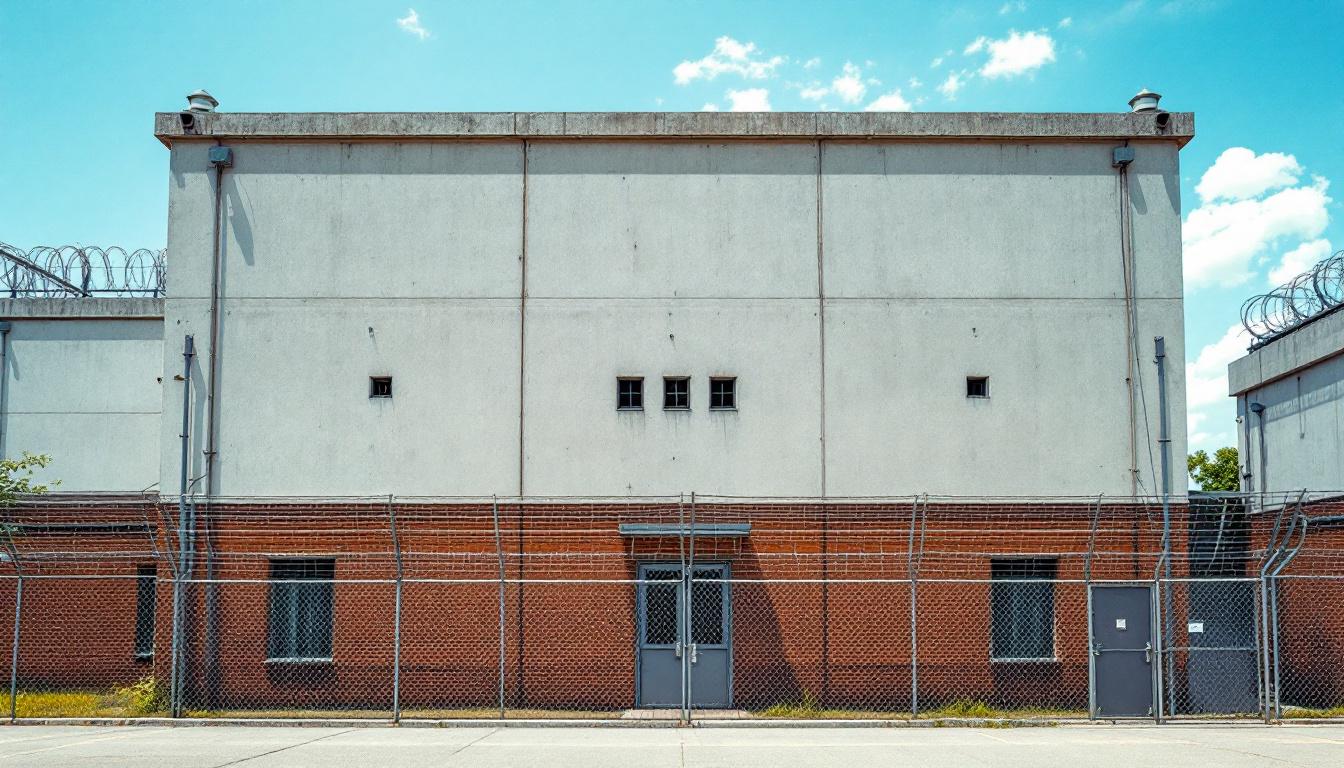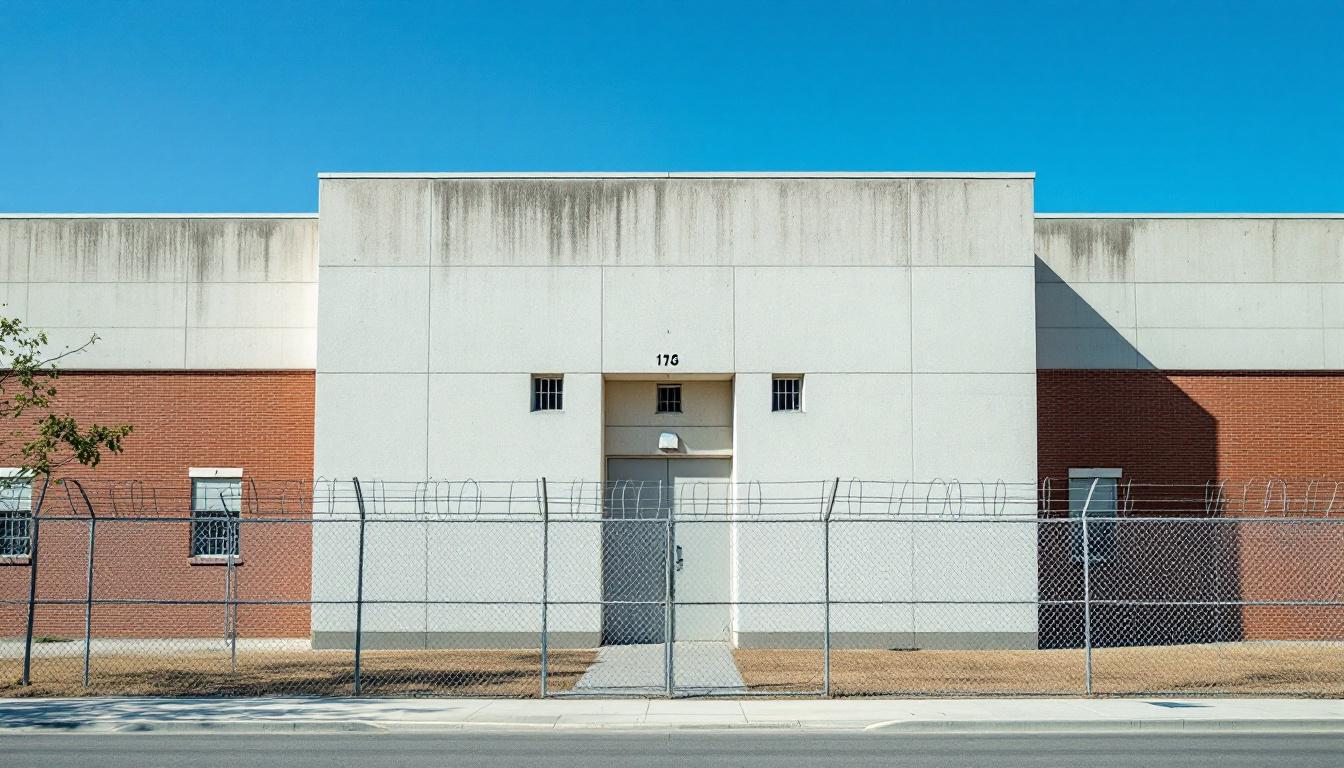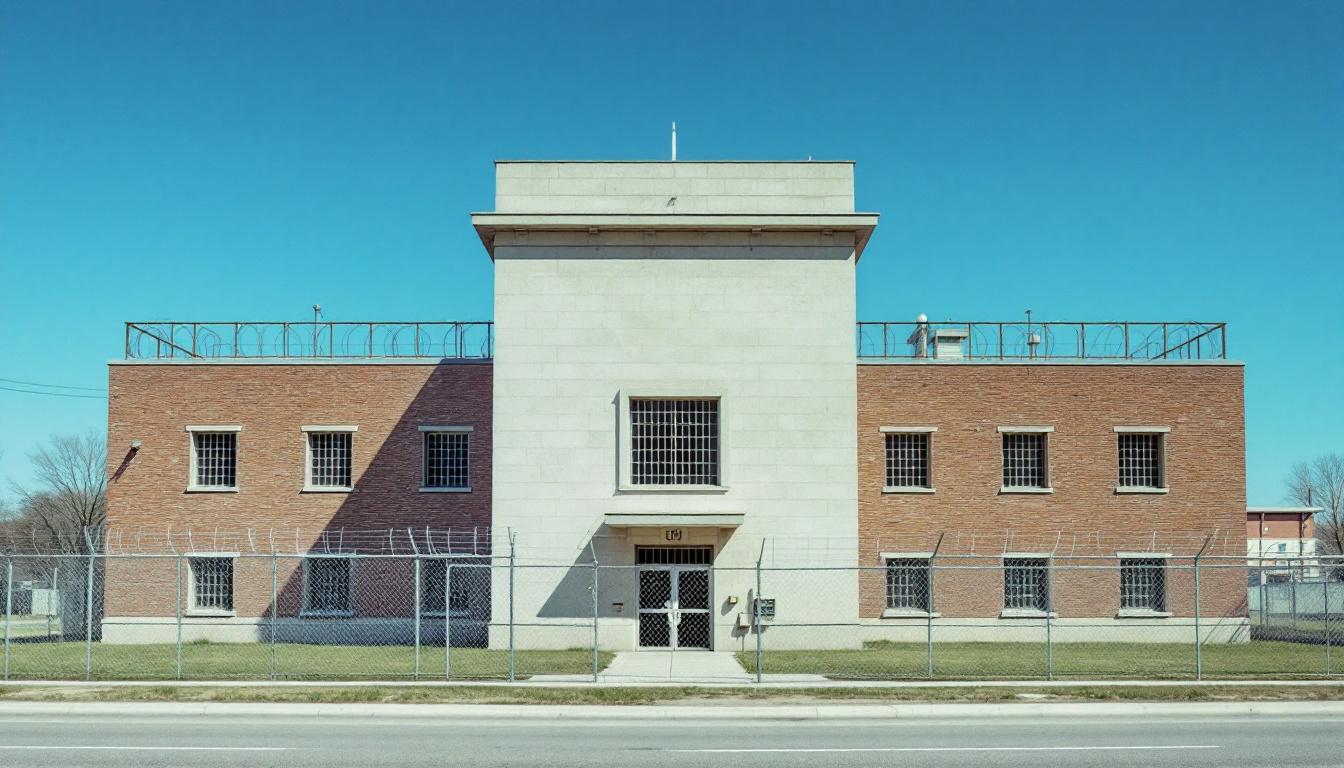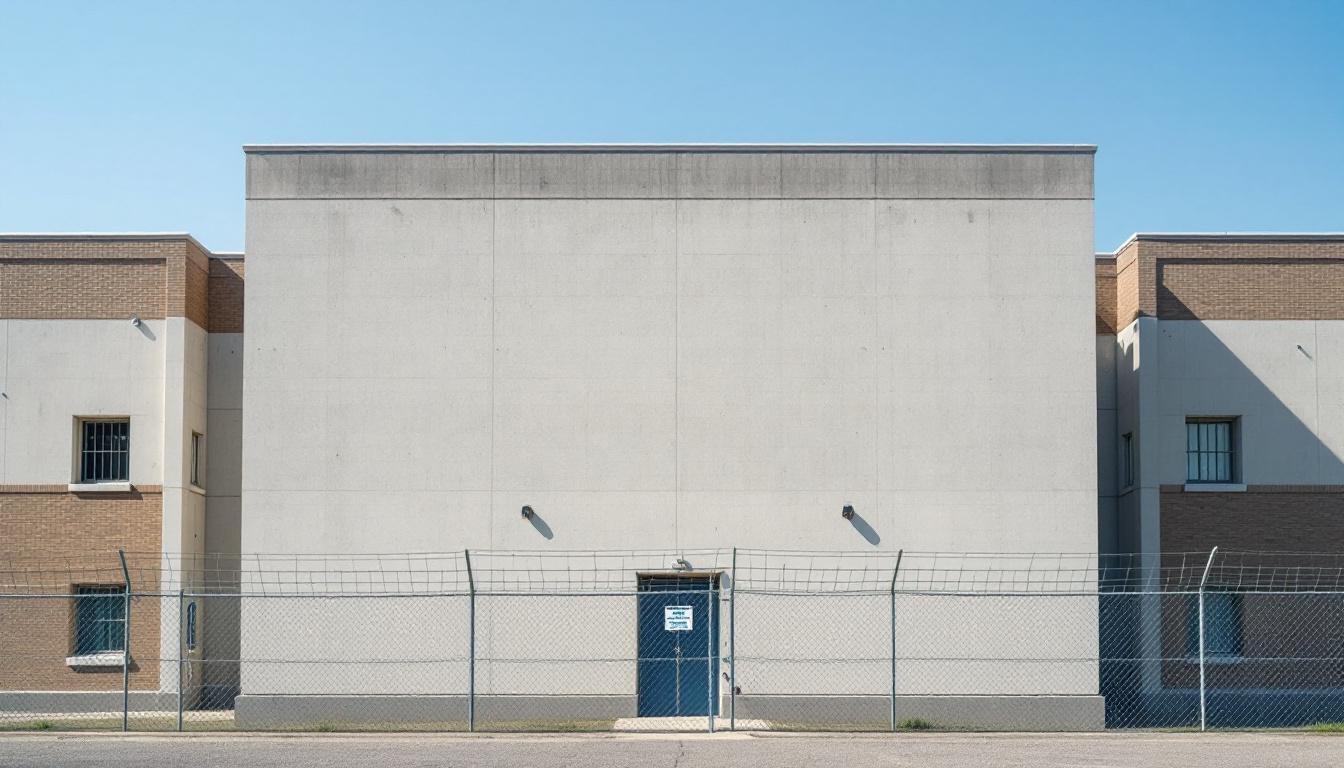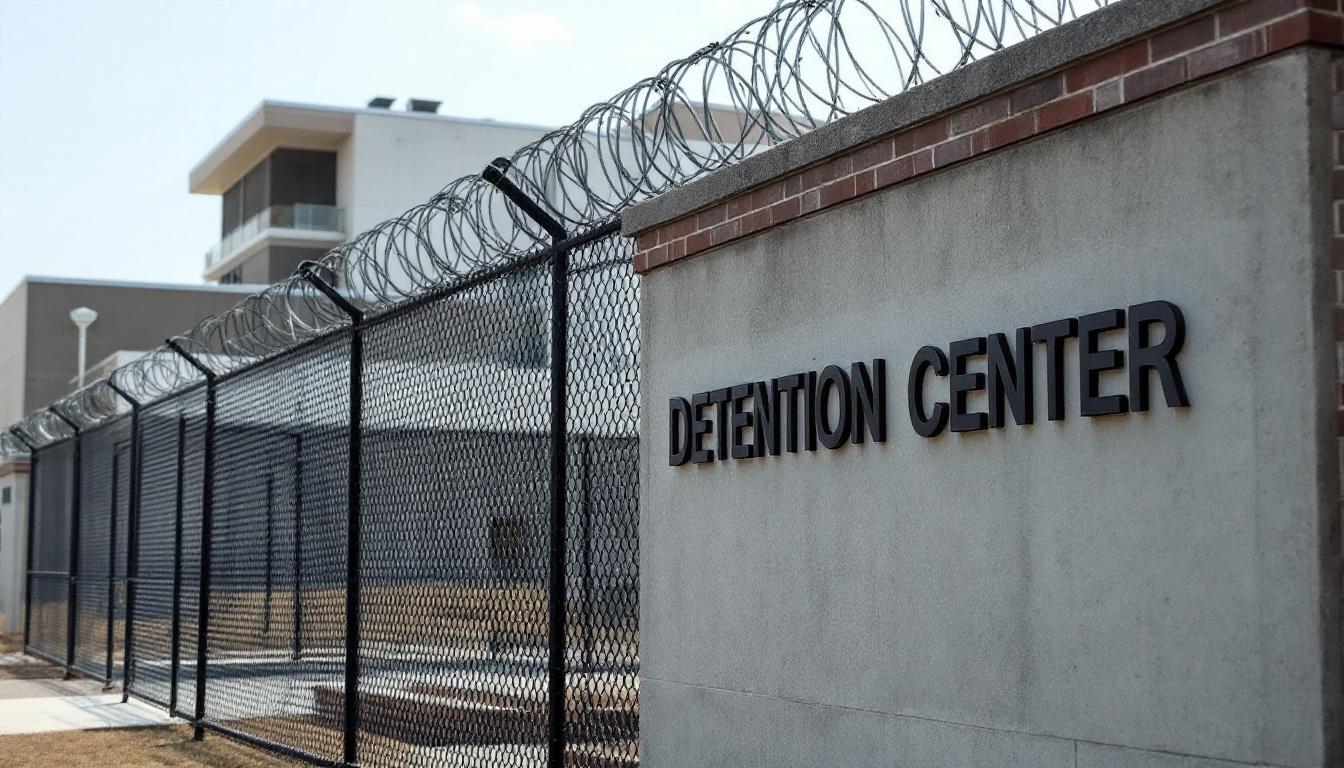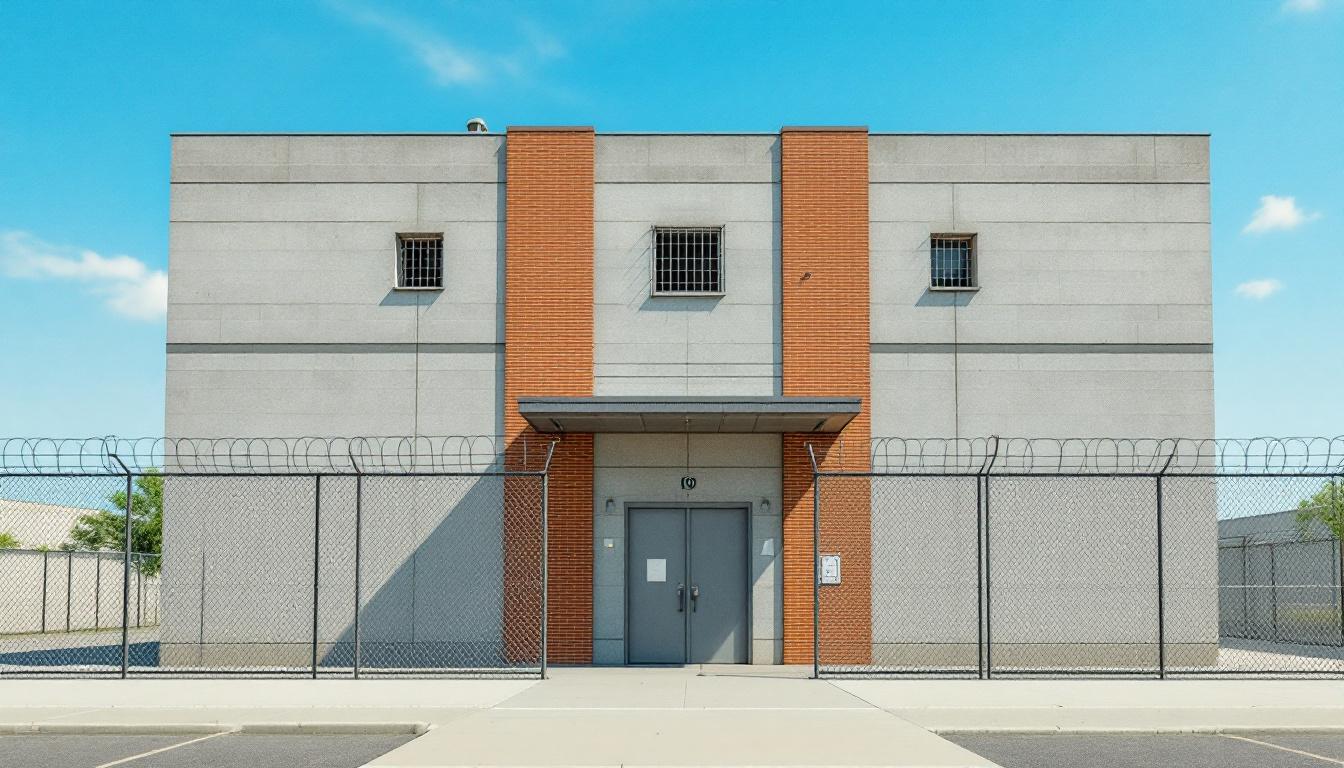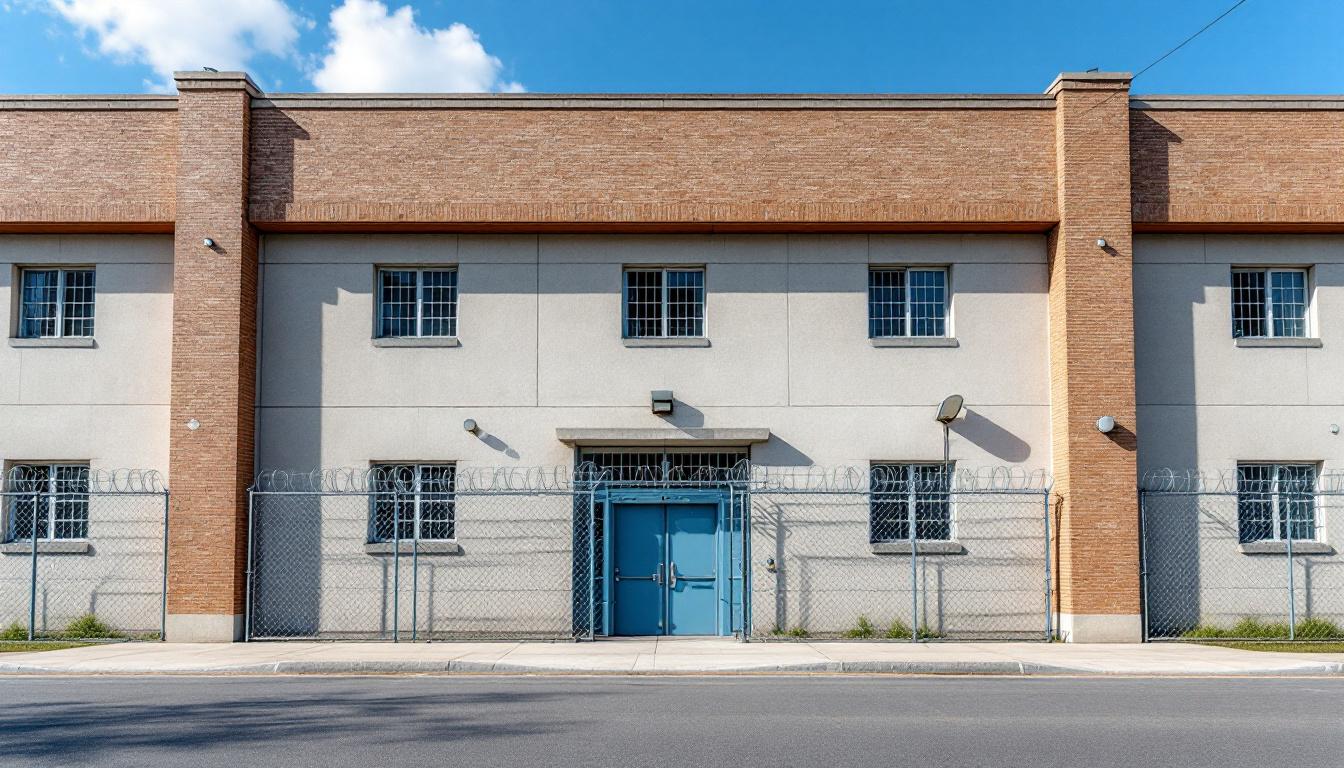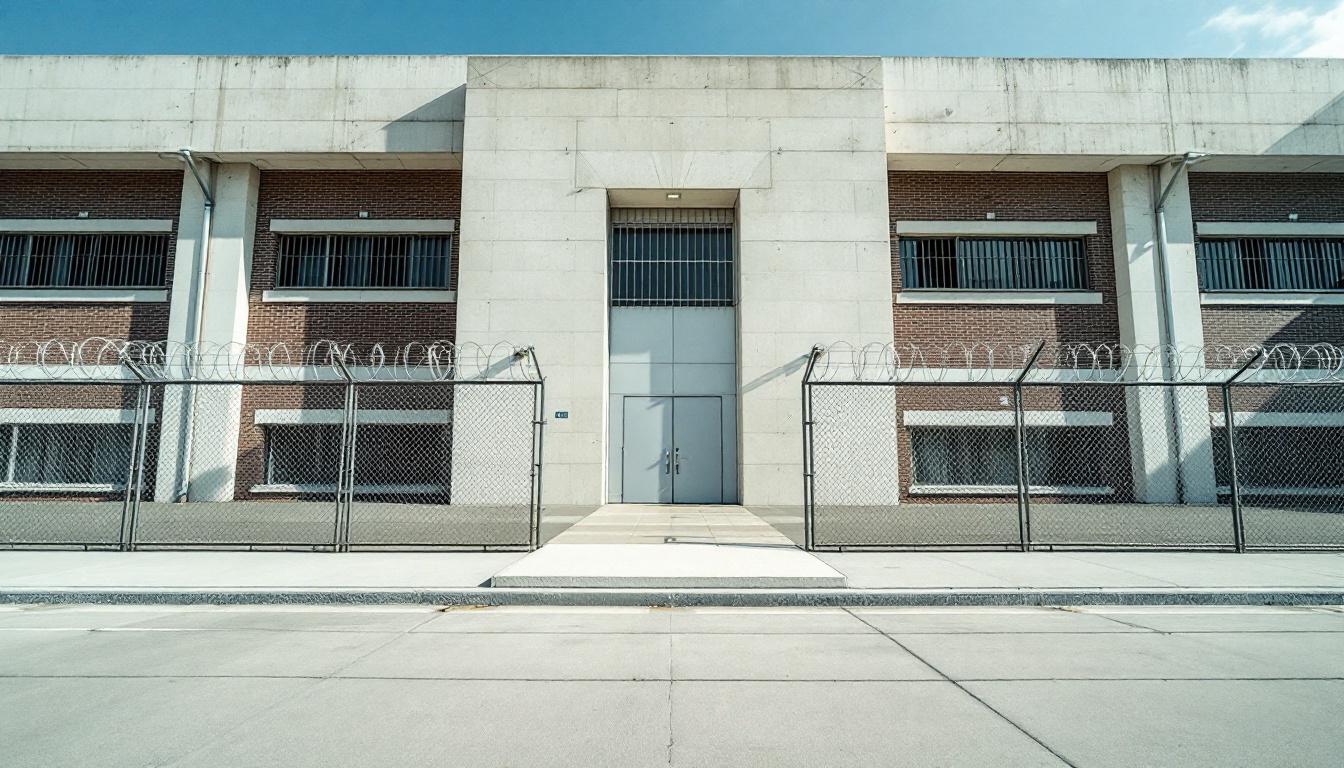
Quick Navigation
How to contact an inmate at Rivers Correctional Institute
This comprehensive guide will walk you through how to connect with an inmate at Rivers Correctional Institute. Follow the steps below to find an inmate and send letters and photos:
- Search for the inmate using our search tool below
- Create your account or log in to Penmate
- Write your message (up to 6,000 characters)
- Send instantly - inmates receive printed copies daily
Find an Inmate
Search for an inmate to start communicating today
Tip: You can search by first name, last name, or inmate ID number
To contact a person at Rivers Correctional Institute start by searching for the person on the official facility website. Perform a search by following these steps:
- Step 1: Enter their first name and last name into the search form and click "Search"
- Step 2: Locate their inmate record
- Step 3: Write down their Inmate ID and any housing information provided
Important! Be sure to enter the person's full name. Nicknames should not be used.
How to Send Messages to Inmates

You can use your phone or computer to send emails, letters, and photos to an inmate. Messages are sent electronically to inmate tablets or kiosks at the facility. If you would like to send a message, start by searching for an inmate at Rivers Correctional Institute.
Sending Photos and Postcards

A great way to send love and support to a loved one at Rivers Correctional Institute is to send photos and postcards. It only takes a few minutes to send photos from your phone and it makes a huge difference. You can also mail postcards with words of support and inspiration, or design your own postcard for special moments like birthdays and holidays.
Important! Be sure not to send any explicit photos or they may not be approved by the facility. You can also use a photo printing app like Penmate to make sure your photos are printed at the correct size (4x6 or 3x5) and are mailed according to the rules and regulations of Rivers Correctional Institute.
Frequently asked questions about Rivers Correctional Institute
-
How long does it take to deliver a message?
If you're sending an email message your letter is usually delivered within 24-48 hours. For messages sent via mail you should expect delivery within 3-7 days. All messages will need be approved by Rivers Correctional Institute.
-
How much does it cost to send a message to Rivers Correctional Institute?
You can send a message free using your phone or mail a message via USPS for the price of a $0.60 stamp and envelope. You can also purchase credits or e-stamps from services starting at $1.99.
-
What services can I use to contact an inmate at Rivers Correctional Institute?
Penmate
You can use Penmate to send letters and photos to an inmate from your phone. It's an easy way to stay in touch during your loved one's incarceration. Use the inmate locator to find an inmate's location and contact information, then you can send messages within a few minutes.
Securus messaging
Securus may be another option for communicating with an inmate at Rivers Correctional Institute. You can create a friends and family account and purchase credits to send messages. All messages will be reviewed and must be approved by the facility.
JPay
Some county jails and state prisons may support sending messages with JPay. You must register an account with the system, find your loved one, and purchase stamps to send messages. For some locations you can also attach photos.
Smart Jail Mail
You may also check if Smart Jail Mail is available at Rivers Correctional Institute. Smart Jail Mail is operated by Smart Communications and has contracted with some state and county jails. After purchasing credits, your messages and photos are sent to the facility, printed out, and then handed out to your loved one.
-
What is the mailing address of Rivers Correctional Institute?
Mailing address:
Rivers Correctional Institute
145 Parkers Fishery Rd
Winton, NC 27986
Phone: (252) 358-5200Business hours:
- Monday: 9:00 AM – 8:00 PM
- Tuesday: 9:00 AM – 8:00 PM
- Wednesday: 9:00 AM – 8:00 PM
- Thursday: 9:00 AM – 8:00 PM
- Friday: 9:00 AM – 8:00 PM
- Saturday: 9:00 AM – 8:00 PM
- Sunday: 9:00 AM – 8:00 PM
-
What are the visiting hours at Rivers Correctional Institute?
Visiting hours at Rivers Correctional Institute vary by housing unit and security level. Generally, visits are scheduled on weekends and holidays, with some facilities offering weekday visits. Contact the facility directly at (252) 358-5200 or check their website for the current visiting schedule. Visits typically last 30-60 minutes and must be scheduled in advance.
-
What items are prohibited when sending mail to Rivers Correctional Institute?
Prohibited items typically include: cash, personal checks, stamps, stickers, glitter, glue, tape, staples, paperclips, polaroid photos, musical or blank greeting cards, hardcover books, magazines with staples, and any items containing metal or electronics. Only send letters on plain white paper with blue or black ink. Photos must be printed on regular photo paper (no Polaroids). Always check with Rivers Correctional Institute for their specific mail policies.
-
How do I send money to an inmate at Rivers Correctional Institute?
You can send money to an inmate at Rivers Correctional Institute through several methods: 1) Online using JPay, Access Corrections, or the facility's approved vendor, 2) Money orders mailed directly to the facility with the inmate's name and ID number, 3) Kiosks located in the facility lobby, or 4) Over the phone using a credit or debit card. Fees vary by method, typically ranging from $2.95 to $11.95 per transaction.
-
Can I schedule a video visit with an inmate at Rivers Correctional Institute?
Many facilities now offer video visitation as an alternative to in-person visits. At Rivers Correctional Institute, video visits may be available through services like Penmate, Securus Video Connect, GTL, or ICSolutions. Video visits typically cost $10-20 for 20-30 minutes and must be scheduled in advance. You'll need a computer or smartphone with a camera and reliable internet connection. Contact the facility for their specific video visitation policies and approved vendors.
-
What identification do I need to visit an inmate at Rivers Correctional Institute?
All visitors must present valid government-issued photo identification such as a driver's license, state ID, passport, or military ID. Minors must be accompanied by a parent or legal guardian who can provide the minor's birth certificate. Some facilities require visitors to be on the inmate's approved visitation list, which may require a background check. Contact Rivers Correctional Institute for specific ID requirements and visitor approval procedures.
-
How can I find out an inmate's release date?
To find an inmate's release date at Rivers Correctional Institute, you can: 1) Use the online inmate search tool if available, 2) Call the facility's records department, 3) Contact the inmate's case manager or counselor, or 4) Have the inmate provide this information during a call or visit. For privacy reasons, some facilities only release this information to immediate family members.
Facility Overview
Contact Information
Rivers Correctional Institute145 Parkers Fishery Rd
Winton, NC 27986
Phone: (252) 358-5200
Official Website
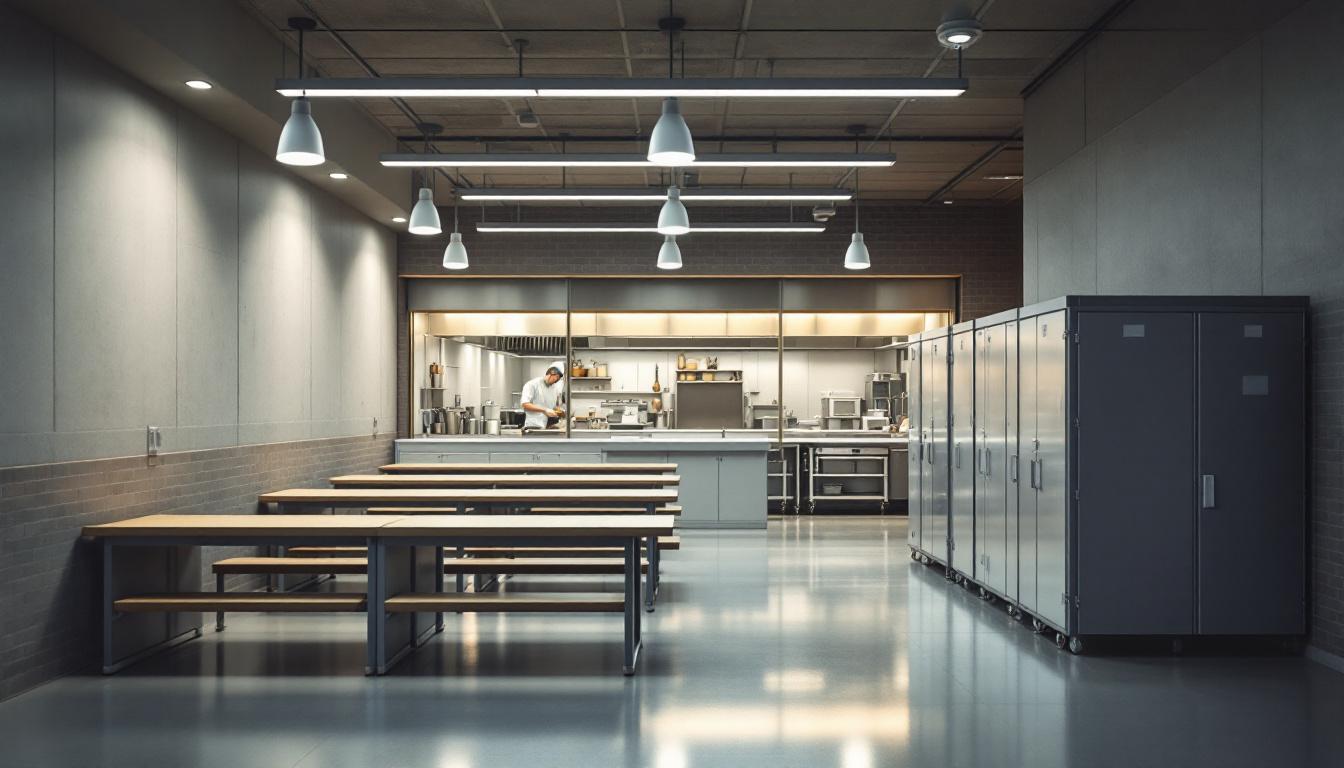
About Rivers Correctional Institute
Correctional facilities serve as integral components within North Carolina's justice system, providing structured environments where individuals work toward rehabilitation and eventual community reintegration. Rivers CI operates within this framework in Winton, a small community in Hertford County that reflects the rural character of northeastern North Carolina's landscape.
As part of the state's broader correctional network across the south region, Rivers CI typically functions alongside other NC correctional facility locations to address the population services needs throughout the area. The facility generally maintains programs that may include educational opportunities, vocational training, and behavioral interventions designed to support individuals during their incarceration period. These services often focus on developing skills and addressing underlying issues that contribute to criminal behavior, with the goal of reducing recidivism and supporting successful reentry into society.
Families and community members seeking information about Rivers CI can generally expect the facility to operate under standard correctional protocols while emphasizing rehabilitation efforts. The Winton location's rural setting may offer certain advantages for programming, though specific offerings typically vary based on available resources and population needs. Like other correctional facilities in the region, Rivers CI generally works to balance security requirements with opportunities for personal growth and preparation for eventual release, recognizing that successful reintegration benefits both individuals and the broader community.
Programs & Services
Through a comprehensive network of supportive services, the population at Rivers CI receives assistance designed to address individual needs and promote successful community reintegration. The facility's approach centers on providing practical skills development alongside personal growth opportunities that help participants build stronger connections with their families and communities. These programs typically emphasize rehabilitation through education, vocational preparation, and therapeutic intervention.
Educational services form a cornerstone of the facility's offerings, providing the population with opportunities to complete their high school education or pursue adult basic education coursework. These programs often include literacy development and academic skill building that may supply participants with the foundation needed for future employment or continued learning. In addition to this, vocational training programs help the population develop marketable job skills in various trades and industries, preparing them for meaningful employment upon release.
Support services extend beyond traditional classroom learning to address the complex challenges many participants face. Substance abuse programs typically offer therapeutic intervention and counseling designed to help individuals overcome addiction and develop healthy coping strategies. The facility may also provide victim awareness programs that encourage participants to understand the impact of their actions while developing empathy and accountability. Practical work experience through janitorial services and food service operations allows the population to gain valuable job skills while contributing to the facility's daily operations, fostering a sense of responsibility and work ethic that often proves beneficial during their transition back to community life.
Daily Life & Visitation
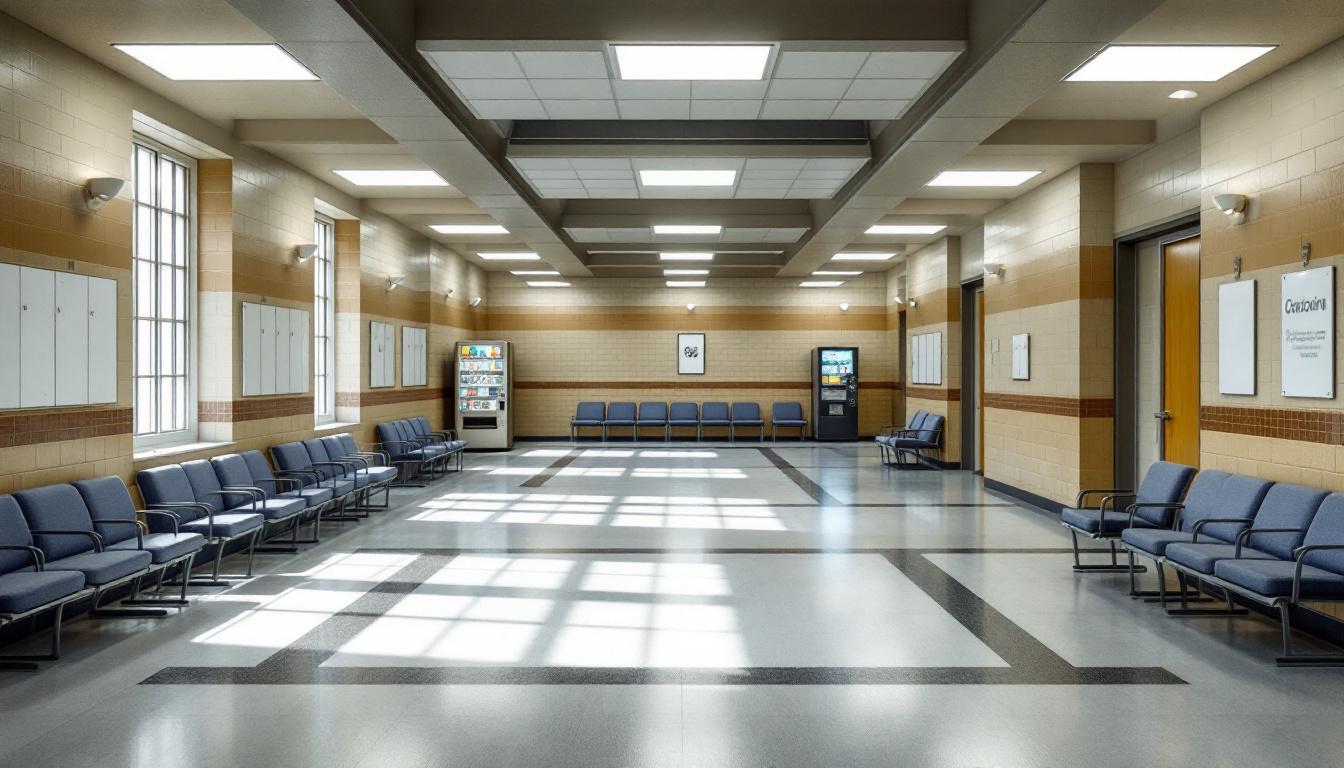
Organizational systems at Rivers Correctional Institution shape every aspect of how the population navigates their daily experience. Today's routines consistently revolve around structured count times, meal periods, and programming schedules that supply predictability within the facility environment. The population typically moves through their day according to established protocols, with housing unit assignments determining specific movement patterns and activity access. Generally, mornings begin with count procedures followed by work assignments or educational programming, while afternoons may offer recreational opportunities and evening hours focus on unit-based activities.
Living accommodations at the facility typically feature dormitory-style or cell-based housing depending on security classification and individual circumstances. The population usually shares common areas within their assigned units, including dayrooms and recreational spaces that supply opportunities for social interaction during designated periods. In addition to this structured housing arrangement, dining operations generally follow scheduled meal times in centralized locations, with the population moving in organized groups according to their unit assignments. Personal property allowances typically include basic necessities and approved items that can be purchased through commissary services.
Despite this highly structured environment, programming schedules supply various opportunities for skill development and personal growth. Work assignments within the facility may include kitchen operations, maintenance duties, or administrative support roles that provide structure and purpose to daily routines. The population typically has access to recreational activities such as outdoor exercise periods, library services, and television viewing during approved hours. Family connections remain important through regulated visitation schedules and telephone privileges, while mail correspondence supplies an additional communication option. Educational and vocational programs generally operate on scheduled basis, offering the population opportunities to participate in structured learning environments that may support their long-term goals.
Ready to Connect?
Start communicating with your loved one today
Search for an Inmate
